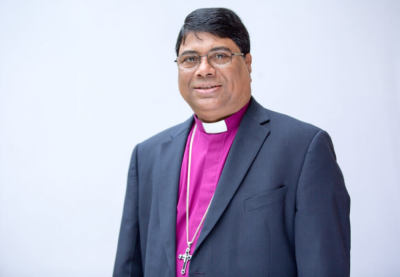For more than two weeks now, the world’s attention has been on the outcome of the U.S. presidential election. As I write this, America remains divided on who is the rightful victor of the 2020 presidential election — and it could take weeks before the matter is officially settled.
Yet outside of the U.S., life has gone on, and other countries are dealing with political crises of their own. In particular, France has been in an intense debate over the limits, or lack thereof, of freedom of expression following the death of Samuel Paty, a French teacher.
According to news reports, Paty was beheaded by an 18-year-old refugee of Chechen descent after the teacher showed his class cartoons of the Prophet Muhammad. These were the same cartoons published by the satirical magazine Charlie Hebdo in 2015, which inflamed tensions with the Muslim community, culminating in a mass shooting at the magazine’s offices that killed 12 people.
Paty’s murder is inexcusable — that is something we should all be able to agree on. We should also be able to agree that freedom of speech allows for people to express what they think or believe, even if we find it offensive, and condemning this horrible crime as an act of terrorism is not in the least Islamophobic. Yet some state and religious leaders do not seem to agree.
President Recep Erdogan of Turkey called for a boycott of French products after French President Emmanuel Macron condemned Paty’s murder and cracked down on religious leaders and groups spreading extremist ideologies in France. Imran Khan, prime minister of Pakistan, also accused Macron of encouraging “Islamophobia” when the French president condemned “Islamist separatism” in his country. In fact, Macron’s stance triggered protests in Lebanon, Turkey, Pakistan and even India, my home country.
“I understand and respect that people can be shocked by these cartoons,” Macron said in an interview with the Arab news channel Al Jazeera. “But I will never accept that someone can justify the use of physical violence because of these cartoons. And I will always defend freedom of speech in my country, of thought, of drawing.”
The anti-French protests are not as much against France, Macron or even “Islamophobia” but against freedom of speech. The inability of leaders such as Erdogan and Khan to tell the difference is disturbing, and sadly, religious leaders who should be able to call these protests out for what they are have remained silent.
As a religious leader myself, I am deeply grieved to have to say something that should be obvious: religiously-motivated violence committed anywhere, by any religious group, must be classified as an act of terror.
Religious leaders should have no qualms about speaking up when faced with the realities of religious terrorism or extremism. And there should absolutely be no discussion about whether we will hurt someone’s feelings if we call the attacks in France — or last year’s Easter church bombings in Sri Lanka and the shootings at the Tree of Life Synagogue in Pittsburgh and at the mosques in Christchurch, New Zealand — acts of terror.
However, we live in precarious times. It seems religious leaders are sometimes more quick to be offended than to call out those who exploit their religions to do harm. In some cases, these attacks are explained away or even condoned, as if a religious motive gives a divine sanction for terror while victims and their families and friends have to quietly watch and endure.
Another common argument against calling religiously-motivated extremism “terror” is that such extremism does not represent that particular religion in its entirety. That is a purely academic argument, one that does not sound borne of personal experience. What is needed is an unflinching argument by religious leaders of those same faith groups that such protests actually empower extremist forces.
Any ideology that promotes violence against adherents of other religions, agnostics or atheists must be dealt with under the strongest possible means of the law. There must not be appeasement of or allowances made for any religious group, whether Muslim, Christian, Hindu, Buddhist or otherwise when they engage in terror attacks. Moreover, a history of religious struggle in any nation cannot serve as an excuse for not standing against present-day violence.
President Macron is right not to compromise the hard-won freedoms of speech and expression and the democratic values developed in the West. He clearly believes in freedom of religion for all, which is why his tough stance is not Islamophobic as some are claiming. Simply condemning the individual perpetrators and saying “this is not Islam” is no longer a sufficient response.

No comments:
Post a Comment